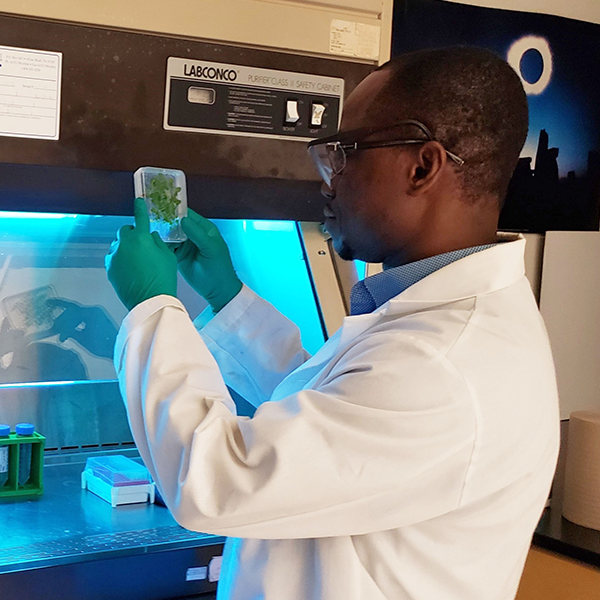A New Paradigm of Ethylene-mediated Plant Growth: Feeding the World

Eric Brenya has had an interest in plants from an early age. He remembers that “as a child, I visited my grandmom’s farm, and I was curious as to how some crops showed more tolerance to diseases, pests, and heat stress while others were more prone to these stressors. Obviously, my grandmom had no scientific knowledge as to why, but she somehow knew that seeds from healthy, robust crops in the previous growing season, coupled with good farming practices, grew better and were more stress tolerant in the next planting season. Thus, my curiosity about how plants respond to environmental changes was born at a very young age.”
After completing his bachelors in Ghana, Brenya worked at the Cocoa Research Institute of Ghana, which is one of the finest plant research institutes in Ghana. While there, he got a scholarship to pursue a Master of Philosophy in plant science at the University of Queensland in Australia to investigate the role of G-proteins in plant immunity under the supervision of Professor Jimmy Botella.
“It’s at the University of Queensland where I learned the nitty-gritty of scientific investigation and discovered that G- protein signaling is crucial for defense against plant viruses,” Brenya said.
After his master’s, he won a prestigious Western Sydney University scholarship to investigate the molecular mechanisms mediating a plant’s response to mechanical stimulation, which promotes biotic and abiotic stress tolerance. In 2020, during the COVID-19 pandemic, Brenya completed his PhD and moved from Australia to the United States to start his postdoc in the Binder lab.
His research is to elucidate how the plant hormone ethylene and the soil-borne bacteria Azospirillum brasilense mediate plant growth. He recently discovered the pre-treatment of plants with ethylene primes metabolic processes resulting in enhanced plant growth and stress tolerance.
“My findings provide a simple way to increase crop yield, which is under serious threat due to climate change which causes unfavorable environmental conditions that impact the quality and quantity of the global food supply. My research is very important because it has the potential of reducing food insecurity as the human population reaches 9.7 billion by 2050.”
“My research experience here has been exciting since I have had the opportunity to be more independent, a critical thinker, and ask the appropriate questions that need to be addressed. These are important to being a successful scientist. The department has diverse researchers studying plants which creates a good working environment to collaborate and explore avenues which I might not have enough experience with, and it’s been exciting working here.”